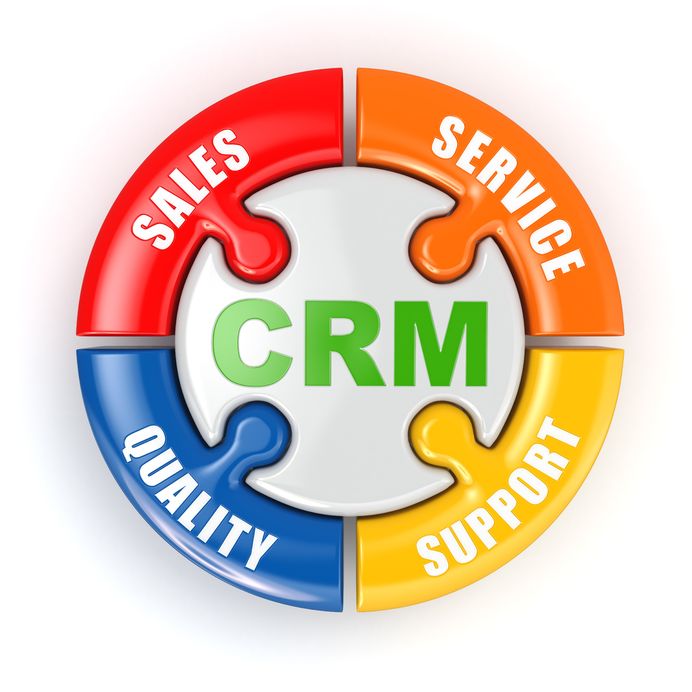
There’s a difference between high school and college, just like there’s a difference between the minor leagues and major leagues in baseball. Both represent a whole other level of performance. A high school diploma is good, but a college degree opens many more doors. Playing in the minor leagues is an accomplishment, but being a major league baseball player is a truly remarkable. The same goes for your CRM system.
Most of our clients own CRM systems, but they’re not truly using them as CRM systems. They’re basically just advanced contact managers. They’re databases – glorified roledexes, that in the best cases have not only demographic information about customers and prospects but also track some activities, notes and emails. A few, however, use their CRM applications like a true CRM system. One of these companies is called Smith Supply (I’m changing their name for the purposes of this piece, but they are real).
Smith Supply distributes parts to industrial equipment users and manufacturers and also provides maintenance and repair services. They have taken their CRM application from one that is used by just a few people to a mission-critical system that is relied on by their entire fifty-person company. How did they make the leap from contact management to true CRM? They did these three things.
They use CRM for both sales and service.
Many people think that CRM systems are just sales and marketing tools. They are right – a good one gives a sales team the ability to track contacts, accounts, opportunities, quotes and forecasts. But smart companies, like Smith Supply, know that only using a CRM system as a sales tool is just like using half the system. CRM is customer relationship, not prospect relationship. Of course, Smith has prospects in their database. But they also have customers, active or inactive, there as well. At smith, every interaction by anyone in the company is recorded. Customer issues, complaints and questions are logged into the database with worfklows designed for follow-up and resolution. The system is used for maintenance and service calls. Alerts have been configured if customers have certain problems or there are delays. Reports are generated daily that show management customer calls and resolutions.
A great CRM system is used by the entire workgroup to provide a 360 degree level of communication and service to the customer, from the time of first contact to the time of last thing done. Nothing falls through the cracks. Everyone in the organization has access to every customers’ interactions.
They have a quarterly plan for their CRM system.
The executives at Smith know that their system is constantly evolving. To that end, they’ve assigned a CRM “owner” and a three-person team representing sales, service and administration to work with that leader. They meet twice a quarter to evaluate how the system is going and to set objectives for things they want to do with the system in the next quarter. They look to expand the use of CRM for sales, service and marketing. They review how users are doing and focus on those that need more support and training. Throughout the quarter they query users about their use of the system and how it can be improved. They attend conferences and stay current on what other companies are doing with their CRM system. They bring in their CRM vendor and outside consultants once a year to review changes in the product and solicit advice for making the system better.
CRM systems aren’t static. The more people that work with the system the more issues, suggestions, improvements, problems and opportunities will be created. Smart companies know that their systems will evolve and put in infrastructure to support those changes.
Finally, they invest in the system.
A college degree is expensive. A major league career requires a lifetime of investment. A true CRM system requires resources to make it valuable for a company. Smith Supply knows this. They spent money to get their system up and running. And they have an annual CRM budget, shared by their sales, service and marketing departments, to ensure that the system not only continues to run but grows and evolves with the company. They’re paying for the time incurred by their CRM administrator and team. They’re paying for continuous training and consulting. They’re paying to integrate their CRM systems with other systems. They pay to send their CRM team to conferences and to subscribe to materials. They understand that for a workgroup system to properly serve the team, they must provide the resources and time needed.
Like anything good in life, CRM systems require investment.
Do you use a customer relationship management system or is it just for contact management? In either case, as long as you’re getting value and you’re satisfied, you’re fine. But if you want your team to be using your CRM system at a major league level like Smith Supply, you’ll have to make sure you’re using it in all aspects of your business – sales, marketing, service – and that your investing and evolving the system throughout the year. Just remember – a college degree is expensive and takes a lot of work, but the long term benefits significantly outweigh a high school diploma.
At Insightly, we offer a CRM used by small and mid-sized businesses from a variety of verticals. Learn about all of Insightly’s features and plans on our pricing page or sign up for a free trial.
Share love, share Insightly: Refer Insightly, Receive a Reward.
 About the Author: About the Author: Gene Marks is a small business owner, technology expert, author and columnist. He writes regularly for leading US media outlets such as The Washington Post, Forbes, Inc. Magazine and Entrepreneur. He has authored five books on business management and appears regularly on Fox News, Fox Business, MSNBC and CNBC. Gene runs a ten-person CRM and technology consulting firm outside of Philadelphia. Learn more at genemarks.com
About the Author: About the Author: Gene Marks is a small business owner, technology expert, author and columnist. He writes regularly for leading US media outlets such as The Washington Post, Forbes, Inc. Magazine and Entrepreneur. He has authored five books on business management and appears regularly on Fox News, Fox Business, MSNBC and CNBC. Gene runs a ten-person CRM and technology consulting firm outside of Philadelphia. Learn more at genemarks.com










